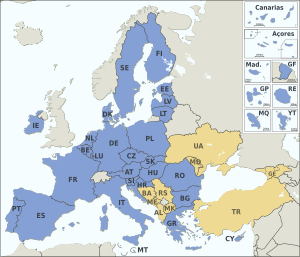The European Union warned on Wednesday that it was ready to act within days to counter proposed new U.S. sanctions on Russia, saying they would harm the bloc's energy security.
Sanctions legislation overwhelmingly approved by the U.S. House of Representatives on Tuesday has angered EU officials: they see it as breaking transatlantic unity in the West's response to Moscow's annexation of Crimea from Ukraine in 2014 and its support for separatists in eastern Ukraine.
Brussels also fears the new sanctions will harm European firms with connections to Russia, and oil and gas projects on which the EU is dependent.
"The U.S. bill could have unintended unilateral effects that impact the EU's energy security interests," EU chief executive Jean-Claude Juncker said in a statement issued after a meeting at which European commissioners were united in their views, according to a senior EU official.
"If our concerns are not taken into account sufficiently, we stand ready to act appropriately within a matter of days. 'America First' cannot mean that Europe's interests come last," he said, mentioning President Donald Trump's guiding slogan.
The bloc, it says, will also prepare to use an EU regulation allowing it to defend companies against the application of extraterritorial measures by the United States.
If diplomacy fails, Brussels plans to file a complaint at the World Trade Organization. "In addition, the preparation of a substantive response that would deter the U.S. from taking measures against EU companies could be considered," it says.
Despite changes to the U.S. bill that took into account some EU concerns, Brussels said the legislation could still hinder upkeep of the gas pipeline network in Russia that feeds into Ukraine and supplies over a quarter of EU needs. The EU says it could also hamper projects crucial to its energy diversification goals, such as the Baltic Liquefied Natural Gas (LNG) project.
The new sanctions target the disputed Nord Stream 2 project for a new pipeline running from Russia to Germany under the Baltic Sea. But the EU note says: "the impact would in reality be much wider."
Source: Reuters


